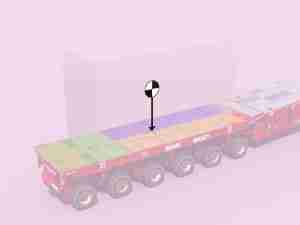Brazilians who saw their income erode and jobs disappear in the worst recession on record endured the government’s austerity program with surprising calm. Until this week, that is.
Hundreds of thousands of truckers fed up with a market-driven policy that has pushed up fuel prices 50 percent in a year paralyzed much of the country, forcing the government and state-run oil company Petroleo Brasileiro SA to make costly concessions to end the disruption on Thursday evening.
The strike revealed a government that has utterly underestimated the power of a well-organized union, due in part to the fact scores of other Brazilians share the truckers’ frustration with surging fuel prices amid below-target inflation. At the same time the protests undermined the pro-market tone of this year’s election campaign, and with it the candidates most closely associated with a reform agenda and the administration of President Michel Temer.
“There’s a rage in the air, frustration with public services, corruption, recession,” said Silvio Cascione, senior analyst with Eurasia Group political consultancy. “This social stew doesn’t bode well for reformist candidates.”
The candidates most identified with both a more liberal economic agenda and the current government are Henrique Meirelles, Temer’s former finance minister, as well as former Sao Paulo governor Geraldo Alckmin and Lower House Chief Rodrigo Maia. Opinion polls show all three currently fail to attract much voter enthusiasm.
At the very least the autonomy that Petrobras had established in relation to the government over the past years, particularly its pricing policy, is now once again in question, Paulo Calmon, a political science professor at the University of Brasilia, said by phone.
“This episode demonstrates that the pricing liberty given to Petrobras in a country that depends substantially on diesel for supplies of fuel and basic products needs to be rediscussed, rethought,” Calmon said.
Seizing the Moment
One of the leading presidential hopefuls—former Ceara Governor Ciro Gomes—was among the first to rail against the current policy that allows fuel prices to fluctuate in line with international oil prices and the currency exchange rate.
“The fuel price increase is an aberration that practically negates the reason for Petrobras’ existence,” Gomes wrote on Twitter. “All of Petrobras’ efficiency should be transferred to the Brazilian public interest, and that is what we are going to do.”
Even former Environment Minister Marina Silva, considered a moderately pro-market candidate, said some price controls were appropriate.
“No one increases electricity rates every day in relation to the dollar. Fuel prices also have to follow a certain logic,” Silva said in an interview with local media this week.
Sudden Protests
The swift escalation in this week’s turmoil recalled the student protests in 2013 over an increase in bus fares that quickly developed into the largest demonstrations since the marches for direct elections at the end of the 1964-85 military dictatorship. While a movement on that scale may not happen again, the potential source of discontent is there, argues Cascione.
Even if the strikes and protests die down, the turmoil brought to the fore again highlights the kind of political and regulatory risks that could make investors think twice about buying assets in Brazil, said Armando Castelar, coordinator of applied economics at the Getulio Vargas Foundation’s IBRE economics institute.
“The perception of risk increases in moments like this, as much due to the pressure as to the sensitivity the government showed in response to that pressure,” Castelar said.









